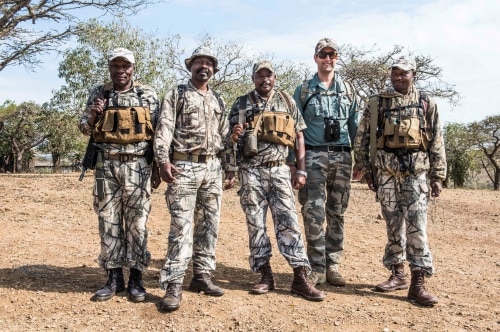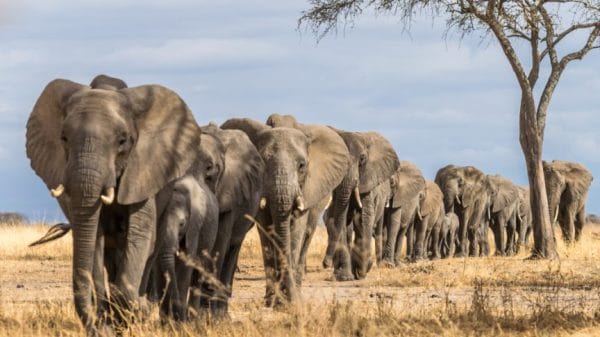A group of field rangers with GRAA CEO Adam Campbell (second from right). Credit: Peter Chadwick – image taken via LADBible.
Not all heroes wear capes. Some – like the game rangers that work to protect endangered wildlife in Africa – wear camouflage.
In a video produced by LADBible, Lee White, Director of the Gabon National Park Service, describes the rangers as “custodians of 50-60% of all of the forest elephants on the planet.” Rangers, otherwise referred to as game wardens or conservation officers, have a wide range of responsibilities depending on where they’re based. These responsibilities could include monitoring local wildlife or confronting suspected armed poachers.
The Game Rangers Association of Africa (GRAA) is non-profit that works to provide rangers with the support they need. Their website refers to rangers as “the foot soldiers of all conservation efforts” and “the ‘boots on the ground’ in Africa’s protected areas.”
One of these rangers is Ghislain Somba Alhadji, who works in Garamba National Park in the Democratic Republic of Congo. “My main role is to protect the ecosystems in general by applying all possible means,” Ghislain told LADBible. “By, among others, environmental education, the fight against poaching in the field, and involving the bordering communities so they can also find their share of responsibilities”
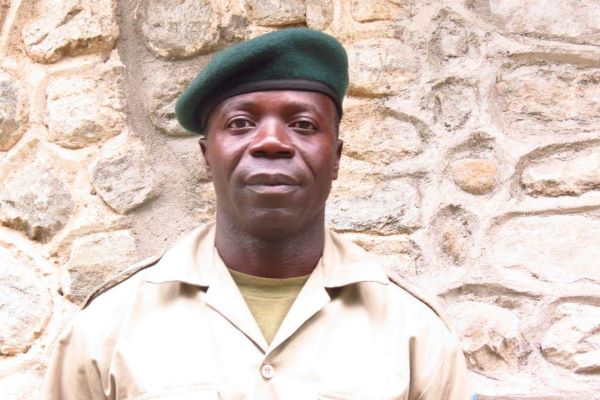
Lack of Support
Adam Campbell, CEO of GRAA, says poachers aren’t the only danger rangers face. “In the field, they are exposed to extreme weather, disease, dangerous animals, rough terrain, and hostile engagements with poachers, militia groups, and criminals,” Campbell told LADBible.
However, Campbell says these aren’t the biggest dangers rangers face. Rather, it’s the lack of support rangers receive from their employers in terms of training, equipment, and facilities.
“The world would be shocked to see how many of these men and women are treated,” said Campbell.
Ranger salaries are varied across the continent. Some rangers earn as little as $50 a month.
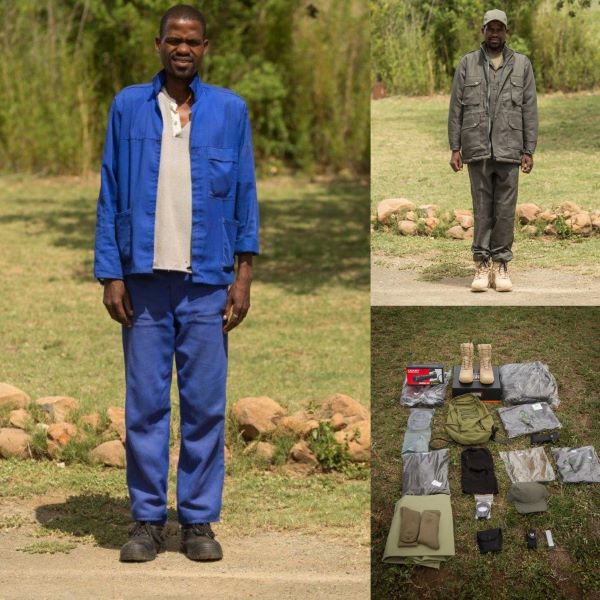
A Calling
For many of the rangers, this type of work was a calling. Such is the case for
Muterian Ntanin, who works as the Maasai Wilderness Conservation Trust (MWCT) Ranger Operation Commander in Kenya. For Muterian, the calling came from a love of animals.
“I was once collecting data as elephant monitor, and after it was found that I have passion, knowledge of the area and experience in monitoring, I was interviewed and given the job,” Muterian told LADBible.
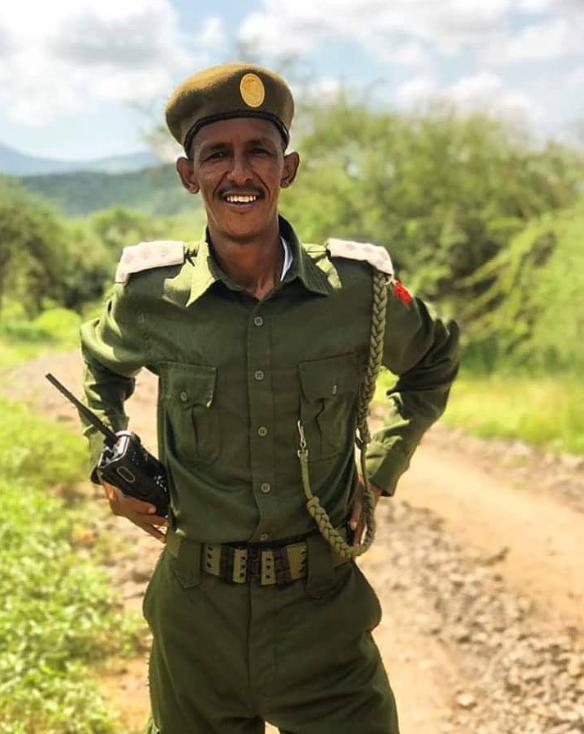
For Ghislain, the rangers were a lifelong calling, stemming from his childhood love of animals and nature.
“Conservation was my passion since I was born, according to my parents,” Ghislain said. “Most of my time was spent in a nearby forest, watching wildlife.”
Rangers aren’t the only ones fighting poachers. See how the local wildlife is fighting back.


